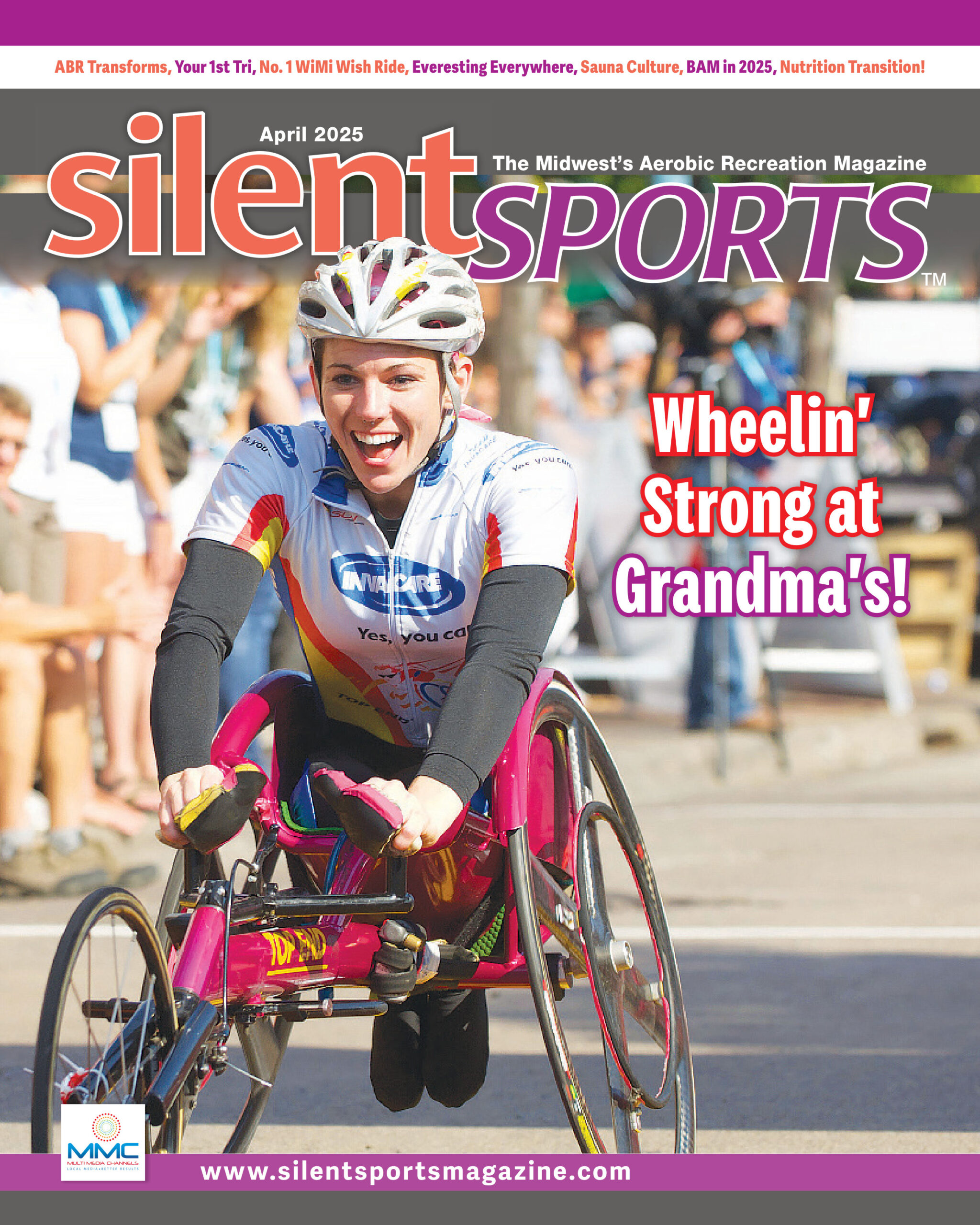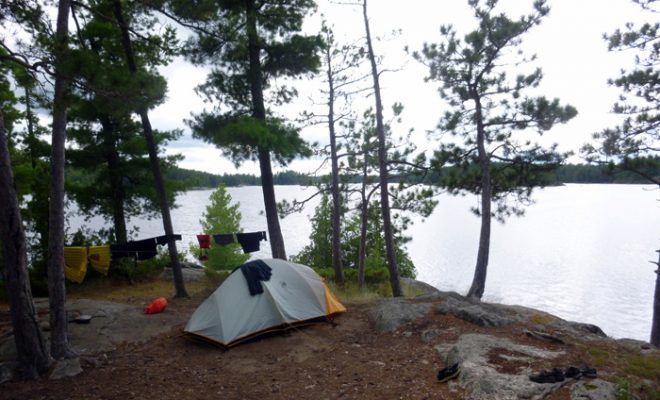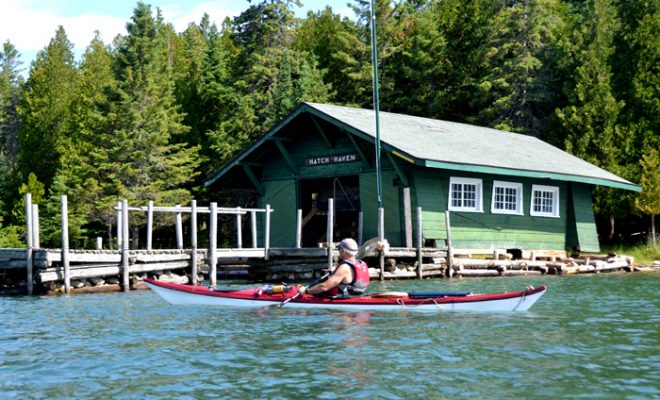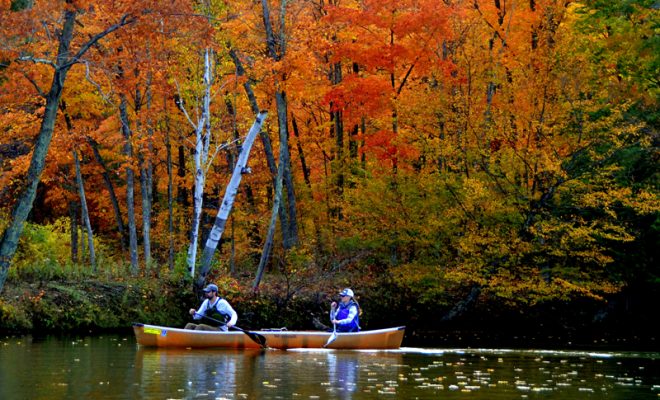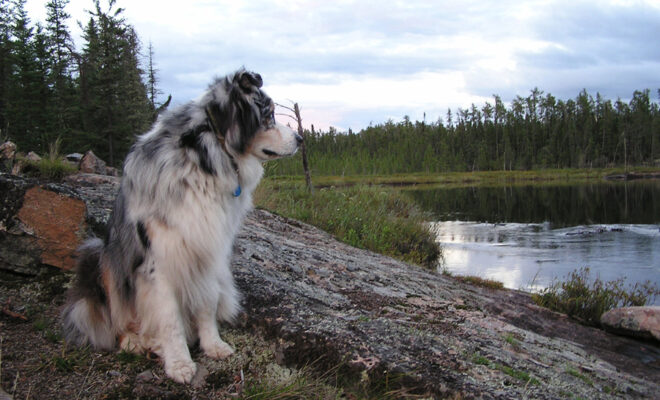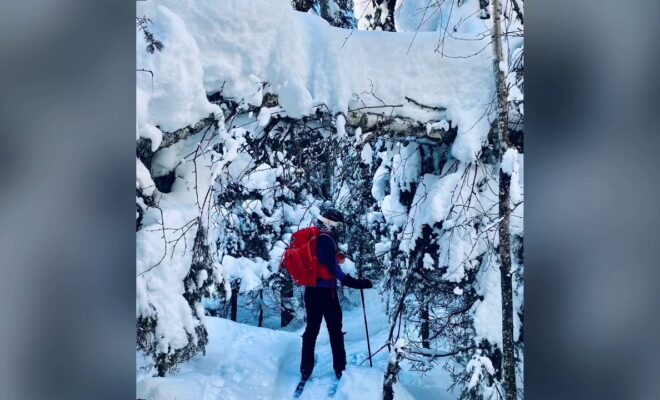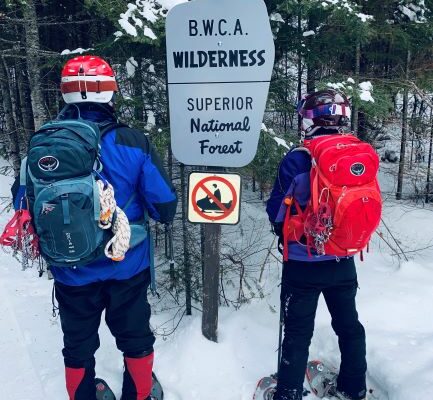Discovering the outdoors as a Boy Scout in the 1950s
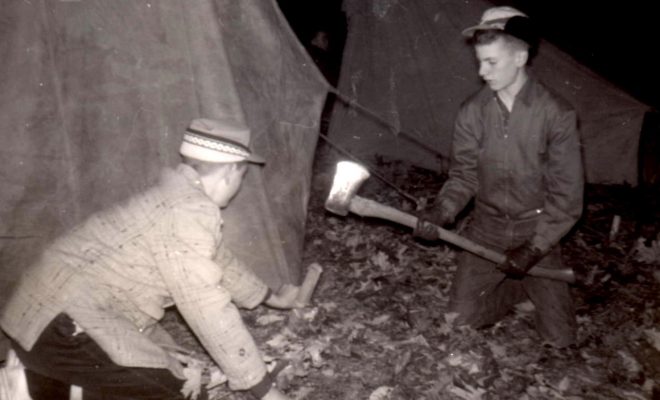
BY DAVE FOLEY
Growing up in Grand Rapids, Michigan I wanted to get out of the city and camp in the woods. When I turned 11, I became a member of Boy Scout Troop 234 and began working on my Tenderfoot badge. During weekly meetings we’d learn knot tying, Morse code and work on memorizing the Scout Oath and Law. We diligently applied ourselves to these tasks, but what we lived for was the monthly camp outs.
On those Fridays a dozen or so kids, along with Scoutmaster Bob and a couple dads, would meet at the church parking lot. Although sometimes we’d go crosstown to Camp Lion, often we’d just drive out into the National Forest and set up camp at the end of a two-track road near a river or lake.
Our tents, heavy canvas ones, leftovers from World War ll, were virtually indestructible but not necessarily waterproof. Only a fool would dare touch the inside wall during a rainstorm, knowing that where your finger met canvas, water would come seeping through. With no mosquito netting or tent floor to keep nature at bay, we might be sharing our sleeping quarters with a foraging raccoon or skunk. During mosquito season, the open tent became a bug sanctuary. Our only defense against insect pests was liberal applications of 6-12 repellent.
It was dark by the time the tents were up, and a fire was needed. Heading into the woods, guided by flashlight beams, we looked for wood. We had an ax and we intended to put it to use, so we’d pass by ready-to-burn sticks and branches lying on the ground in favor of a piece big enough to chop. Then we’d begin swinging. Chips would fly everywhere. Occasionally the blade might carom off a log, coming within inches of an arm or leg, but we weren’t worried. This was the 1950s. Since we didn’t know anyone who had been maimed with an ax, we assumed no one would be hurt.
Our campfires were bonfires with flames shooting high into the sky. That made for crispy blackened marshmallows and occasionally scorched leather shoes for those who pushed their cold feet too close to the fire. Minor calamities aside, we would sit by the blaze enthralled by the sheer amazement of what we had created.
When we’d told all the ghost stories we knew – the scariest one ending with “And the next day when they came back there was a bloody hook hanging on the car door,” we’d head for our tents. Although nothing lay between our sleeping bags and the hard ground, we weren’t uncomfortable – just cold – as the chill from the earth seeped through our flannel sleeping bags. If there was moisture around, those bags sucked it up. Even if you were in a dry tent, the humid air plus body sweat made the interior of the flannel sleeping bag feel like you were wrapped in a banana skin.
Sleep didn’t come quickly. Lying in the dark, our minds, already primed by ghost stories, would imagine creatures lurking just beyond our tent as our ears strained to interpret the meaning of even the slightest rustle in the woods. As our repellent lost its effectiveness, we’d be distracted from the terrors outside by the buzzing of mosquitoes trying to use us as feeding stations.
Well before dawn, everyone under the age of 15 would be up feeding kindling wood into the ashes of last night’s fire. Then we’d light a match and touch it to the tinder so we could start getting warm.
Eventually a sympathetic adult would appear and set in motion the preparing of a pancake breakfast.
Although our scout leaders encouraged us to work on mastering campcraft skills and nature study to complete requirements for our next scout award or merit badge, we were easily distracted. If a tree hung out over the river, we’d have to climb it and logs bridging creeks had to walked. Into every stream or lake we’d throw logs or sticks and then bomb them with rocks as they drifted by.
By noon appetites would be raging. The midday meal would either be tinfoil dinners baked in the fire or hunter’s stew cooked on the big green Coleman stove. We’d dice potatoes, slice carrots, cut up celery and weep while we chopped onions. If it was to be stew, we’d fry up hamburger and dump that, with all the vegetables, into a pot of boiling water. Invariably growling stomachs trumped patience and we’d pull the stew off the stove too early and be eating bowls of burger pieces and semi-cooked vegetables. Tinfoil dinners, depending on the meal’s proximity to the cooking coals, consisted of food pieces ranging from raw to scorched. Our hunger cured even the pickiest eaters and all of us ate until there was no more.
After lunch we’d wash dishes in the creek or lake, load up the scout trailer and start the drive back home. Usually within a few miles, the nearly sleepless night, and all our running around, caught up to us and most everyone would fall asleep.
Next month we’d do it again, pitching our tents in another wooded locale, a group of city boys getting another dose of the great outdoors.
I stayed with scouts for several years achieving the Eagle Scout rank and later served a year as an assistant scoutmaster. Probably as much as anything, my experience in scouting nurtured my love of the outdoors.

